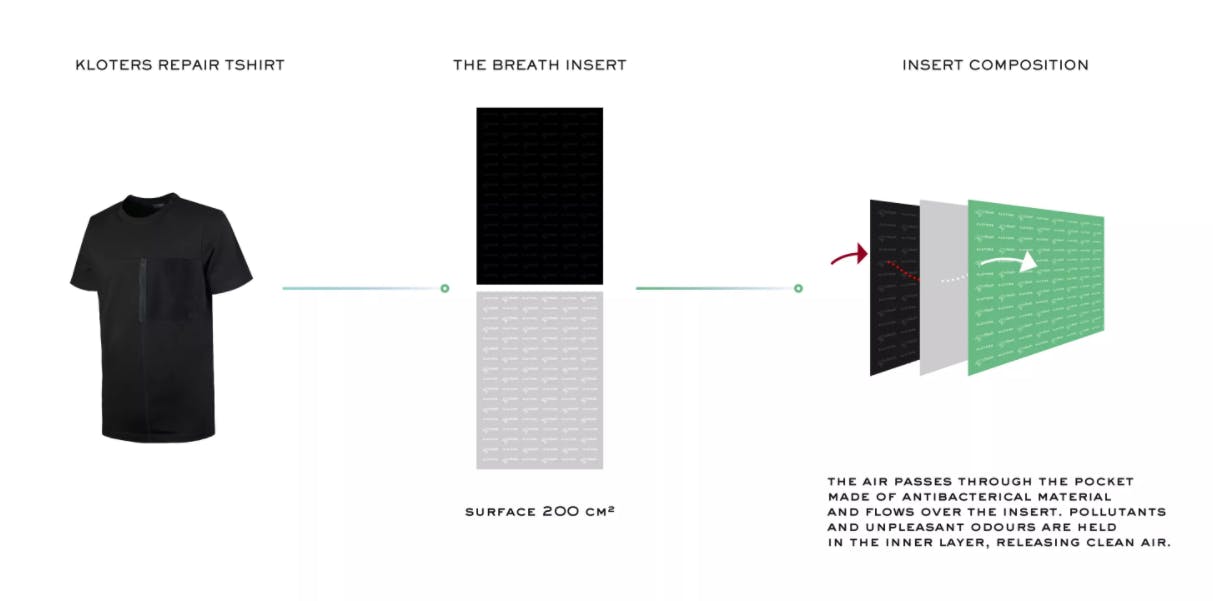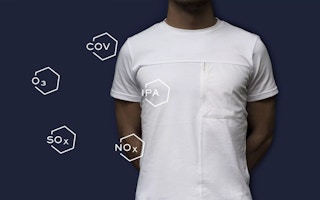Fashion is notorious for being one of the world’s most polluting industries. But a group of designers from the global centre for fashion, Italy, say they can change that with a t-shirt that absorbs air pollution.
To continue reading, subscribe to Eco‑Business.
There's something for everyone. We offer a range of subscription plans.
- Access our stories and receive our Insights Weekly newsletter with the free EB Member plan.
- Unlock unlimited access to our content and archive with EB Circle.
- Publish your content with EB Premium.
The RepAir t-shirt, designed by Milan-headquartered underwear maker Kloters, is promoted as a zero impact garment that can trap the emissions of two cars.
The material that gives the RepAir its air-cleaning properties—created by Italian tech firm Anemotech and marketed as “The Breath”—is an anti-bacterial carbon mesh inserted into the t-shirt’s pocket that absorbs and traps pollutants in the air such as nitrogen oxides and sulfur oxides.
According to a press release for Kloters, the t-shirt represents “a new frontier in fashion and sustainability, designed for a world in which everyone can contribute to improving the environment”. A promo video for the t-shirt shows the fumes from coal-fired power plants shot in reverse, and asks ‘Can a t-shirt save the world?’

How the RepAir t-shirt works. Image: Kloters
Made from cotton grown in Italy that requires less water and pesticides to cultivate, RepAir t-shirts are made to last “beyond a single season,” the company says. However, the new t-shirt is not recyclable.
Kloters CEO, Federico Suria, told Eco-Business that for now the t-shirts’ air-filtering component must be treated as special waste and cannot be recycled, but the company is working with Anemotech on producing a recyclable version.
Dr Thomas Tang, the former head of the Kuala Lumpur Centre for Sustainable Innovation, and now director of partnerships at Eco-Business, said he questioned the t-shirts air-cleaning abilities compared to regular air filtration systems.
“I am sceptical that wearing a shirt will clean up the atmosphere any time soon,” he said, pointing out that the t-shirt relies on passive circulation rather than a pump to filter the air, which is more effective.
Kloters responded that the amount of air that can be filtered naturally by the t-shirt may often be “higher” than can be processed by a pump, and unlike regular filtration systems the t-shirt uses no energy to clean the air.
The t-shirt works for six months before the filtration system needs replacing, he added.
Kloters is launching a Kickstarter campaign to raise funds to support the launch of RepAir this month.










